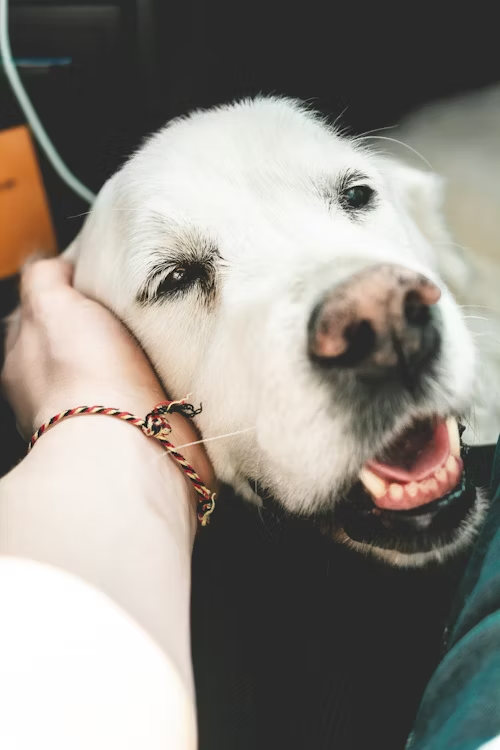Choosing the Right Dog Breed for Your Family: What You Need to Know

Choosing a dog is a significant decision that impacts your family’s lifestyle, dynamics, and daily routine. With hundreds of dog breeds to choose from, each with its unique characteristics and needs, finding the right match can seem overwhelming. This guide will help you navigate the process by highlighting key factors to consider and providing insights into various breeds to help you find your perfect furry companion.
1. Assess Your Family’s Lifestyle
Before diving into specific breeds, take a moment to evaluate your family’s lifestyle and needs. Consider the following:
1.1 Activity Level
- Active Families: If your family enjoys outdoor activities, hiking, or running, a high-energy breed like the Labrador Retriever, Border Collie, or Australian Shepherd might be a great fit.
- Sedentary Families: For a more relaxed lifestyle, consider low-energy breeds such as the Bulldog, Basset Hound, or Shih Tzu.
1.2 Space and Living Environment
- Apartment Living: Smaller breeds like the French Bulldog, Dachshund, or Pug are well-suited for apartment living due to their smaller size and lower exercise needs.
- House with Yard: Larger breeds or those with higher exercise needs, such as the Golden Retriever, German Shepherd, or Siberian Husky, benefit from having access to a yard or larger living space.
1.3 Time Commitment
- Busy Families: If your schedule is packed, consider breeds that are more independent or have lower grooming requirements, such as the Chihuahua or the Basenji.
- Homebodies: Breeds that thrive on companionship and require more attention, like the Cavalier King Charles Spaniel or the Border Collie, are ideal for families who spend a lot of time at home.
2. Consider the Breed’s Temperament
Different breeds have distinct temperaments that can greatly affect how well they fit into your family:
2.1 Friendly and Social
- Golden Retriever: Known for their friendly and outgoing nature, Golden Retrievers are great with children and other pets.
- Beagle: Beagles are playful and friendly, making them excellent family pets who get along well with kids.
2.2 Protective and Loyal
- German Shepherd: German Shepherds are loyal and protective, making them good choices for families looking for a guard dog as well as a family companion.
- Doberman Pinscher: Dobermans are known for their loyalty and protective instincts, but they also need proper training and socialization.
2.3 Independent and Low-Maintenance
- Basenji: Known as the “barkless dog,” Basenjis are independent and require less attention, making them suitable for busy households.
- Shiba Inu: Shiba Inus are independent and have a strong personality, ideal for families who appreciate a more self-sufficient dog.
3. Evaluate Grooming Needs
Grooming requirements vary widely among dog breeds. Consider how much time you can commit to grooming when choosing a breed:
3.1 Low Grooming Needs
- Beagle: Beagles have short coats that require minimal grooming.
- Boxer: Boxers also have short, low-maintenance coats that are easy to care for.
3.2 Moderate Grooming Needs
- Cocker Spaniel: Cocker Spaniels have longer coats that require regular brushing and occasional trimming.
- Basset Hound: Basset Hounds need regular brushing to manage their droopy skin and occasional ear cleaning.
3.3 High Grooming Needs
- Poodle: Poodles require regular grooming to keep their curly coats tangle-free.
- Yorkshire Terrier: Yorkies have long, silky coats that need daily brushing and regular grooming appointments.
4. Consider Health and Lifespan
Different breeds come with varying health considerations and lifespans. Research potential health issues associated with each breed and consider:
4.1 Common Health Issues
- Bulldog: Bulldogs are prone to respiratory issues due to their brachycephalic (short-nosed) structure.
- Dachshund: Dachshunds are at risk for back problems due to their long spine and short legs.
4.2 Lifespan
- Chihuahua: Chihuahuas can live up to 15-20 years, making them a long-term commitment.
- Great Dane: Great Danes have shorter lifespans, typically around 7-10 years.
5. Kids and Other Pets
If you have young children or other pets, choose a breed known for being good with kids and other animals:
5.1 Good with Kids
- Labrador Retriever: Labradors are patient and gentle with children.
- Pug: Pugs are playful and affectionate, making them great companions for kids.
5.2 Good with Other Pets
- Cavalier King Charles Spaniel: These dogs typically get along well with other pets due to their gentle nature.
- Shih Tzu: Shih Tzus are generally friendly with other dogs and animals.
6. Training and Intelligence
Consider the breed’s trainability and intelligence, especially if you’re a first-time dog owner:
6.1 Highly Trainable Breeds
- Border Collie: Known for their high intelligence and trainability, Border Collies excel in obedience training.
- Poodle: Poodles are intelligent and eager to please, making them relatively easy to train.
6.2 Moderate to Low Trainability
- St. Bernard: St. Bernards are gentle giants but may require patience and consistency in training.
- Basset Hound: Basset Hounds can be a bit stubborn, so training may require more effort.
7. Rescue and Adoption Considerations
Regardless of breed, consider adopting from a shelter or rescue organization. Many mixed-breed dogs also make wonderful family pets and might be a perfect fit for your family’s needs.
7.1 Benefits of Adoption
- Variety: Shelters often have a diverse range of breeds and mixed-breeds, giving you a wide selection.
- Support: Many shelters offer information on a dog’s temperament and background, helping you make an informed decision.
7.2 Things to Check
- Health Check: Ensure the dog has been vetted and is up-to-date on vaccinations.
- Behavior Assessment: Understand the dog’s behavior and any potential challenges.
Conclusion
Choosing the right dog breed for your family involves careful consideration of various factors, including lifestyle, temperament, grooming needs, and health. By assessing your family’s needs and researching different breeds, you can find a furry companion who will bring joy and companionship to your home. Remember, whether you choose a specific breed or adopt a mixed-breed dog, the key is to ensure that the dog’s characteristics align with your family’s lifestyle and needs. Happy dog hunting!




